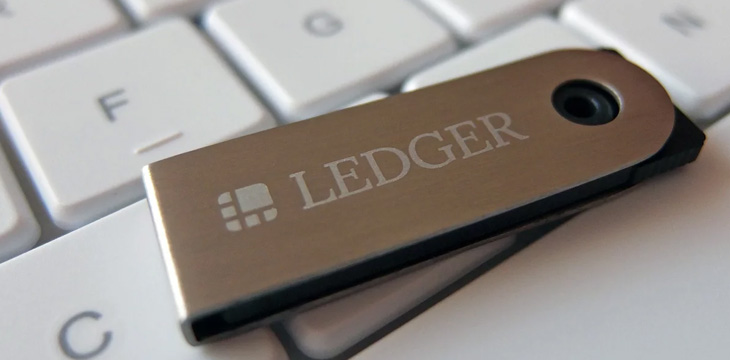|
Getting your Trinity Audio player ready...
|
French startup Ledger recently announced that it’s working on updates for its software, with plans to expand its suite of services for mobile devices in a bid to create a seamless, cross-platform experience for its users.
Despite being met with flaws and vulnerabilities in recent news, the hardware wallet company has pushed to recreate its software in such a way that it also addresses the need for well-designed user interfaces that will not confuse newer users of leading cryptocurrencies supported by the wallet.
In the announcement, Ledger has stated that it will begin to deprecate its Google Chrome extension first introduced in 2015. These Chrome apps only functioned natively with legacy Bitcoin (BTC) and Bitcoin Cash (with the CashAddr upgrade), while users of other cryptocurrencies such as Ethereum still had to open a new page whenever they do transactions with Ledger’s Chrome app. If a user had a portfolio with multiple cryptocurrencies, they had to manually install and open each one for Ledger’s firmware to work properly with the selected hardware.
Another note to explain this gradual demise for the 3-year-old Ledger Chrome extension would be how Google’s ChromeOS has been making inroads into app development and integration, making some previous extensions and web apps either redundant with Android apps or obsolete for the Chrome browser installed on a desktop.
Ledger’s initial release will feature native desktop applications for Windows, macOS, and major Linux distributions. Multiple cryptocurrencies will be supported on the apps, including Bitcoin Cash, Ethereum, Ripple, BTC, and 19 other cryptocurrencies. Ledger’s latest devices, such as the Ledger Nano S and the Ledger Blue, will be compatible with these apps. In case of new registrations, users with no physical Ledger wallets may still access their accounts on a read-only basis, with an option to password-protect the viewing access.
Once opened, the desktop apps will treat users to a dashboard view of all their assets, with information on current values from their cryptocurrency and exchange of choice. The desktop apps will retain the basic functions of a wallet: it will allow users to send, receive, and check their account balances, as well as examine the history of their transfers on the blockchain.
The apps will also function with Ledger’s proprietary address and transaction confirmation process (verified through keys on the hardware) before funds are released for transfer. With their introduction of desktop-class software, Ledger has also promised that the desktop apps will perform better in terms of account synchronization.
Ledger said its developers are hard at work with future updates that include applications for both Android and iOS, giving cryptocurrency users a full mobile experience with features such as spotlight search, transaction tags and notes and third party app support through API integration, as well as support for more cryptocurrencies and Ethereum ERC-20 tokens with the Ledger Nano S.
The hardware wallet company is also working on a new version of the Ledger Manager platform, and will release it to Google Chrome, Opera, and Chromium for open source extensibility. The platform will allow Ledger users to access their account details with a web-based solution involving direct device communication through a USB port.
For users who opt for the desktop apps, the new apps will have its own set of USB drivers. However, the startup notes that its deprecation of the Google Chrome extension would mean that native compatibility with Chromebooks will be suspended, pending the full integration of Android apps to the operating system.

 02-23-2026
02-23-2026 




